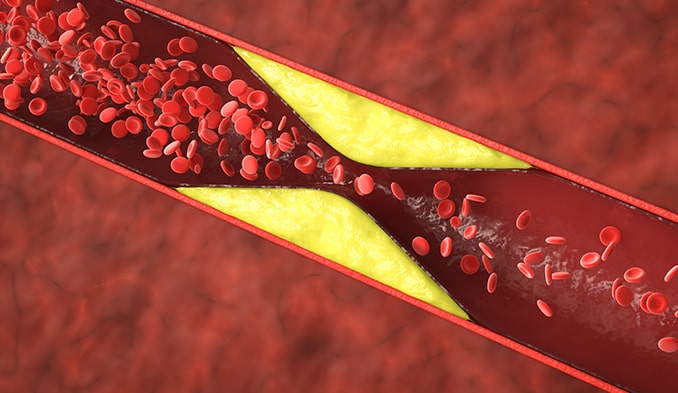Prof. Dr. Luger talks about the disease hyperlipidemia.
Univ. Prof. Dr. Anton Luger,
endocrinology specialist
What is hyperlipidemia?
This is a condition that leads to high lipid levels in the blood. Regular measurement of different types of cholesterol is necessary, including so-called "bad cholesterol" (LDL), and "good cholesterol" (HDL), total cholesterol and triglycerides.
What are the acceptable cholesterol levels?
The acceptable upper limit of LDL-cholesterol depends on risk factors such as age, diabetes, kidney disease, high blood pressure and family history that can cause atherosclerosis.
What are the values in hyperlipidemia?
For patients without concomitant cardiovascular disease, the upper reference limit for LDL-cholesterol is 130 mg/dL and for total cholesterol 190 mg/dL. This value for triglycerides should be below 150 mg/dL.
What are the factors leading to hyperlipidemia?
Obesity is one of the main causes that can lead to hyperlipidemia. Poor diet and lack of physical activity also contribute to the rise in blood lipids, and one of the most risk factors for developing hyperlipidaemia is genetic predisposition.
Which signs suggest elevated lipid content?
A blood test is necessary to determine if the level of fat in the blood is high, as there are no symptoms to suggest this condition. Being overweight is a common sign, but not necessarily linked to hyperlipidaemia.
Over what period of time is the testing of triglyceride and cholesterol levels necessary?
Initial screening for cholesterol is recommended at about age 35 in patients without concomitant risk factors. It is recommended that follow-up examinations be performed every fifth year. In people with high blood lipid levels, therapy is prescribed and repeat testing after 3 months. Thereafter, testing of levels is required every year.
What can high fat lead to?
High levels of 'bad cholesterol' can be a contributor to a number of diseases such as stroke, chronic kidney disease and peripheral artery disease. Some patients may develop atherosclerosis with a risk of myocardial infarction. At elevated levels, above 500 mg/dL, of triglycerides, there is a risk of inflammation of the pancreas (pancreatitis), which can lead to a deficiency of enzymes in the body and the development of diabetes. This condition can also be life-threatening for the patient.
What are ways to deal with elevated lipid and triglyceride levels?
When high triglyceride levels are observed, it is especially important to stop taking any alcohol. In cases of high cholesterol, it is advisable for the patient to take foods containing a small amount of carbohydrates and fats. In overweight people or those predisposed to obesity, in addition to a healthy diet, an active lifestyle is recommended. By following such a program, high blood lipid levels can be lowered relatively quickly.











